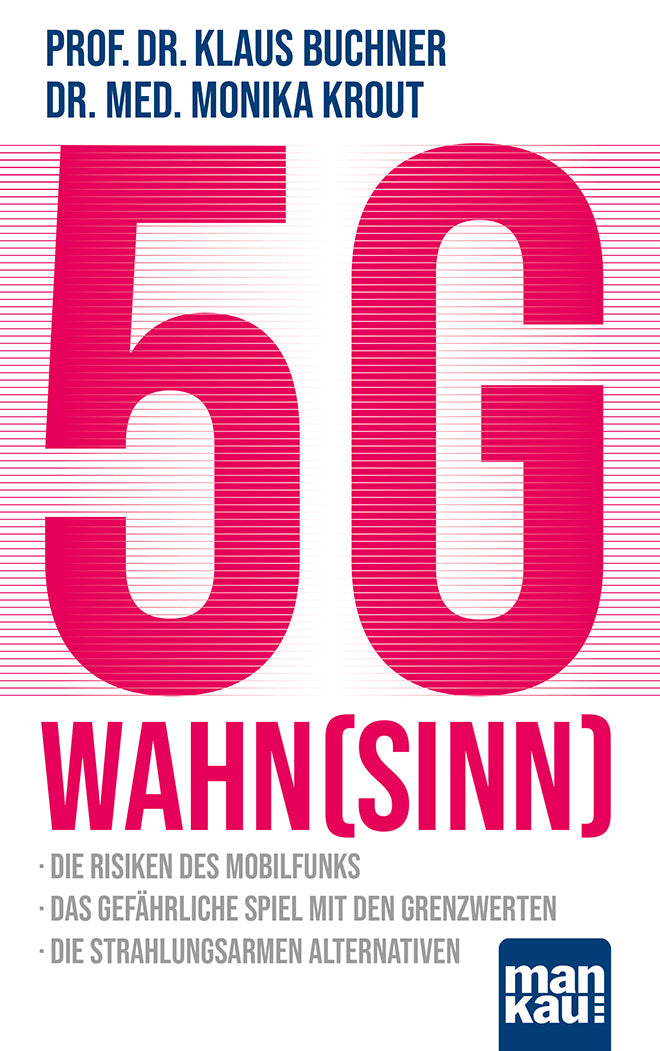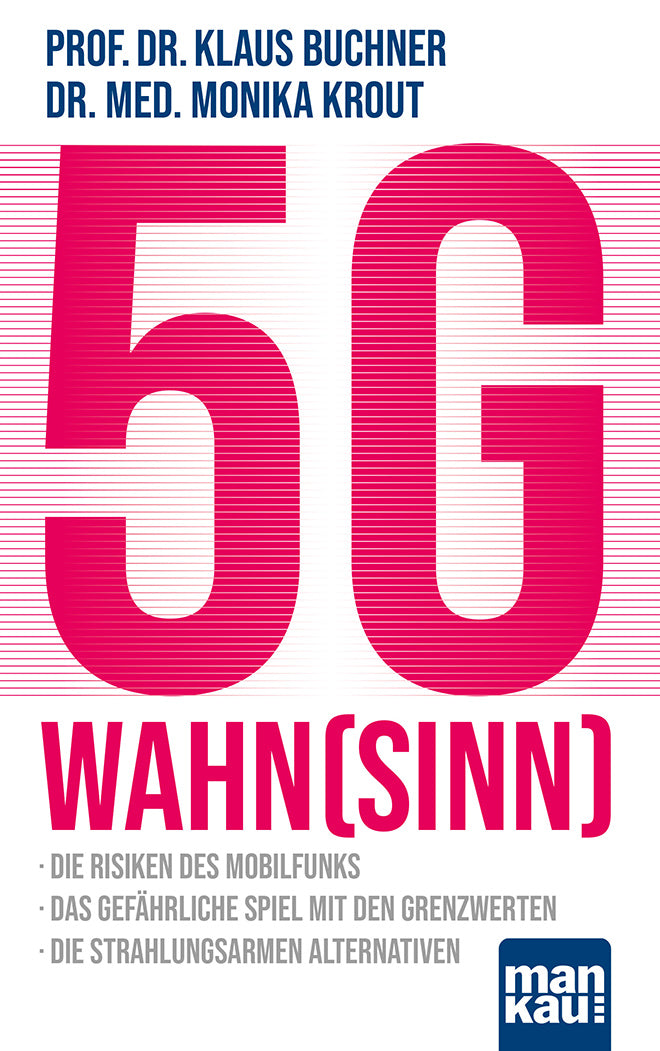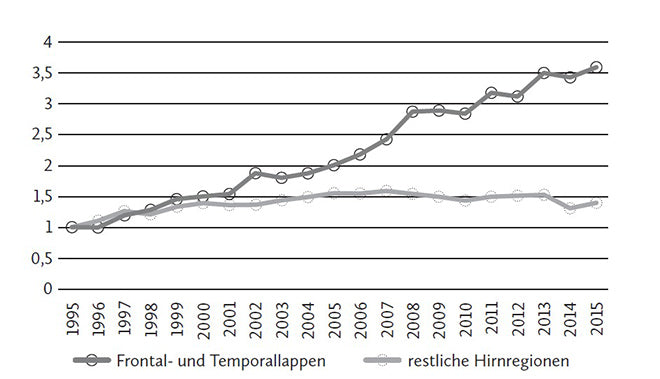
High-risk mobile communications technology: EU Parliament and WHO confirm the risks to health, the environment and data security
High-risk mobile communications technology: EU Parliament and WHO confirm the risks to health, the environment and data security
The renowned scientist and former European politician Prof. Dr. Klaus Buchner, who published the book " 5G Madness " together with Dr. Monika Krout, has been drawing attention for years to the health and social consequences of an uncritical expansion of the 5G network. He calls for mobile communications technology to be designed in a way that is healthy and environmentally friendly.
Controversial discussions about mobile phone consequences
Many people today find it hard to imagine life without smartphones and Wi-Fi: fast and ubiquitous information from the Internet, simple and seemingly limitless communication options and an almost inexhaustible reservoir of entertainment and service offerings make everyday life easier and determine leisure behavior, not only for the younger generation. The consequences of (mobile) radio technology have been controversially discussed since its development and have become the focus of scientific and political debates, particularly since the widespread expansion of the latest generation of networks.
In 2021, Klaus Buchner published the book " 5G Madness " together with environmental physician Dr. Monika Krout, which describes the effects of mobile phone radiation on humans and nature in detail and in a way that is easy to understand. The current statements of the World Health Organization (WHO) [1] and the EU Parliament also classify radio radiation as possibly carcinogenic; the carcinogenic effects on animals and the damage to human sperm have been particularly well researched and documented. [2] In addition, chronic diseases such as EHS (electromagnetic hypersensitivity) are officially recognized as environmental diseases under the current regulations. [3]
High energy and resource consumption
In view of the current challenges posed by the energy crisis and climate change, as with any technology, the fundamental question is whether the promises for the economy and quality of life are actually reasonable in relation to the effort and risks. Klaus Buchner believes that the resource and energy consumption of mobile communications in particular should be viewed critically. This is because it counteracts the urgently required rapid conversion of energy, raw materials and basic materials to renewable sources. The question also arises as to whether the ever-increasing expansion of mobile communications technology does not contradict the necessary transformation of our everyday lives towards a more conscious and careful use of our natural resources.
There are currently many more cell phones than people in the world. They contain rare raw materials/earths and valuable metals, which are often mined under inhumane conditions and lead to severe environmental destruction on site. Mobile phone use of any kind leads to high energy requirements due to exploding data exchange and huge data centers. The "Internet of Things" propagated due to the economic interests of individual companies will further increase resource and energy consumption as well as CO2 emissions. Tens of thousands of 5G satellites will be sent into Earth's orbit and will end up as toxic space junk after just a few years.
Threatening data misuse
Radio modules are now so small and inexpensive that they are integrated into countless everyday objects such as cell phones, vehicles, fitness trackers, clothing, washing machines, sporting goods, baby diapers, etc. This allows for a comprehensive networking of lifestyles and behaviors. By driving forward smart cities/homes/mobility, data is collected, processed and used on all processes in public and private life. This has created a billion-dollar market for the resale of user data to marketing companies.
There is an increasing risk that citizens will be observed and spied on through mobile or stationary devices. However, the mass collection of data contradicts the principle of data economy or minimization and data avoidance, as required by the Federal Data Protection Act (BDSG) and the European General Data Protection Regulation (GDPR). It would also violate the right to informational self-determination (Article 2, Paragraph 1 of the Basic Law). In the private sphere, the home must also be considered inviolable (Article 13 of the Basic Law). Attacks on our data are becoming more and more frequent and can, for example, lead to increased industrial espionage and hacker attacks, as has become apparent not only in the wake of the war in Ukraine. Buchner believes that it is therefore high time for government intervention to avert the dangers to health, the environment and privacy.
[1] The IARC, the WHO agency responsible for this, classified radiofrequency radiation as "possibly carcinogenic" as early as 2011. See Radiofrequency electromagnetic fields in Category 2B at https://monographs.iarc.who.int/wp-content/uploads/2018/09/ClassificationsAlphaOrder.pdf . Note from Prof. Buchner: "This puts radiofrequency radiation on a par with substances such as DDT (banned in Germany for decades) and chloroform (now only permitted under strict safety precautions). Upgrading radiofrequency radiation to Category 2A has so far failed due to political rather than scientific resistance."
[2] See Opinion of the European Parliament’s Scientific Service EPRS, Panel for the Future of Science and Technology (STOA): Belpoggi, F. (2021), Health impact of 5G, PE 690.012., www.europarl.europa.eu/stoa/en/document/EPRS_STU(2021)690012
[3] See Official Journal of the EU of 4 March 2022, p. 34 ff. On the subject of EHS, see also the statements of BUND Naturschutz: https://www.bund-naturschutz.de/mobilfunk/leben-und-funk/tiere-und-pflanzen
Book tip:
Prof. Dr. Klaus Buchner / Dr. med. Monika Krout: 5G madness. The risks of mobile communications - The dangerous game with the limits - The low-radiation alternatives. Mankau Verlag, 1st edition May 2021, paperback 13.5 x 21.5 cm, 255 pages, 16.95 euros (D) / 17.50 euros (A), ISBN 978-3-86374-608-7
Recommended links:
More information about the book “5G Madness”
To the reading sample in PDF format
More about author Prof. Dr. Klaus Buchner
More about author Dr. med. Monika Krout
Our social networks − for questions, criticism, suggestions











